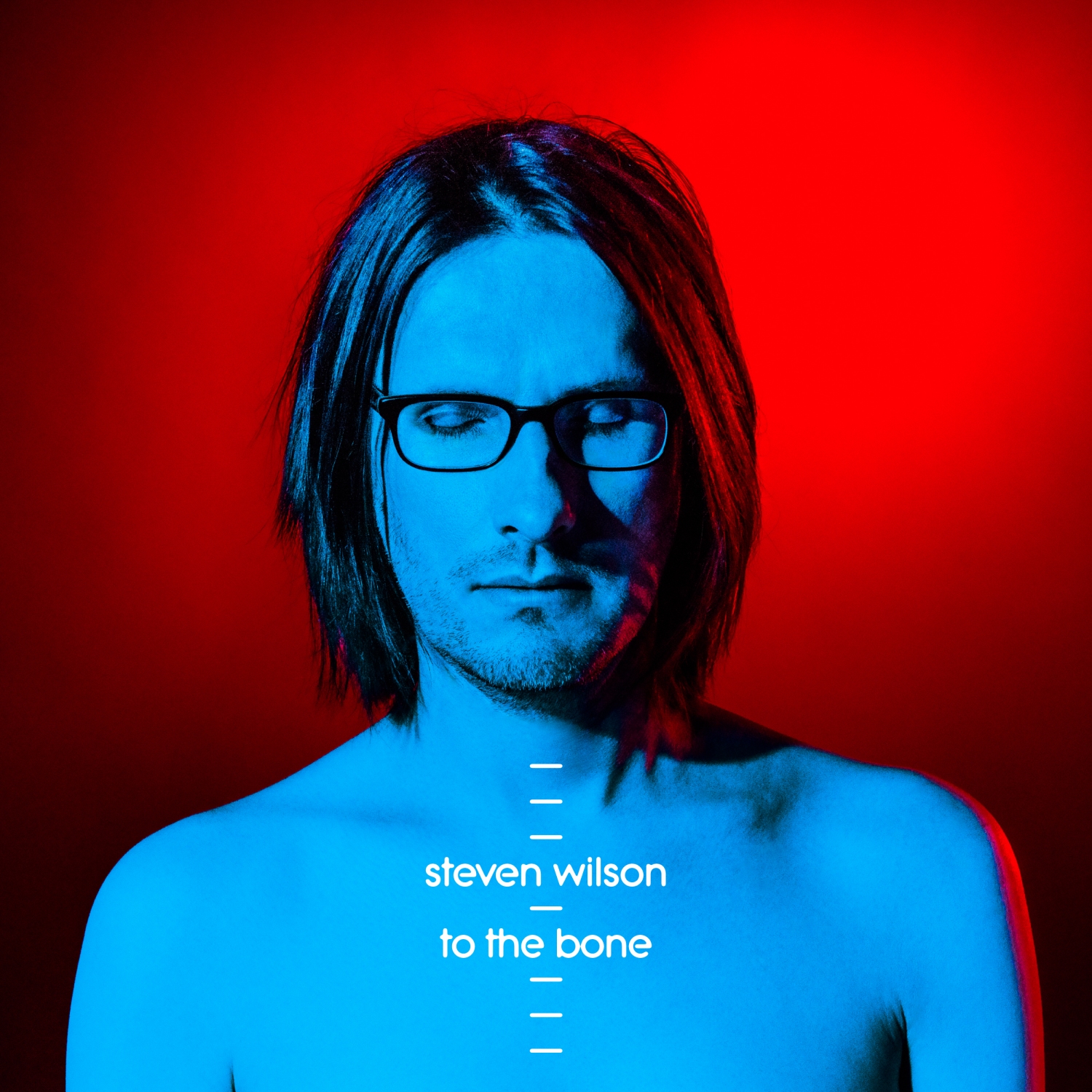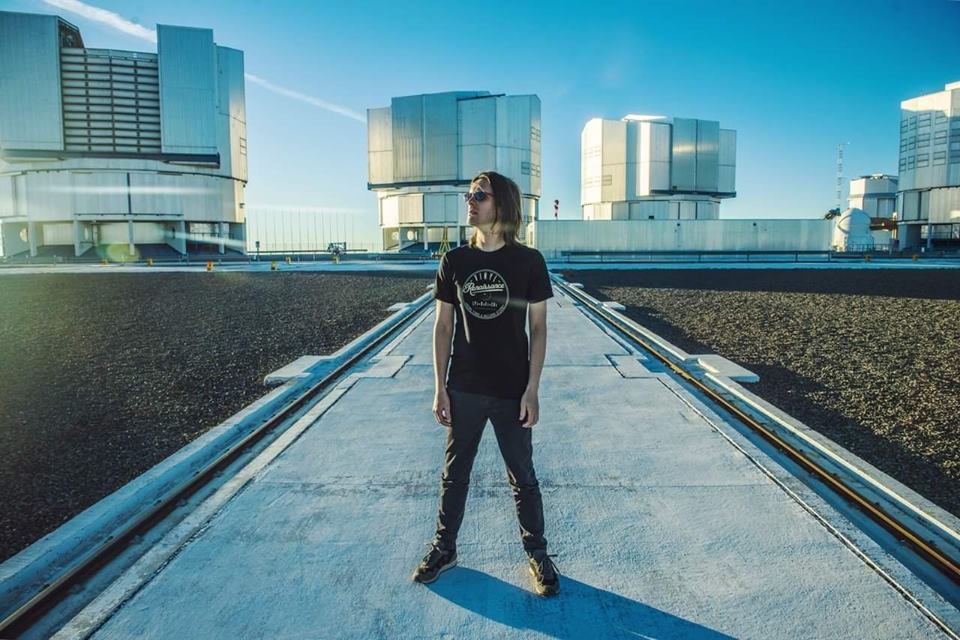By Christina Pritchett for World Prog-Nation
World Prog-Nation’s Christina Pritchett spent a few minutes with Steven Wilson via phone to talk about the upcoming album To The Bone. There has been a lot of discussion among fans regarding the album’s more Pop direction. In this interview, SW provides his unparalleled insight on that very topic as well as other details of various very important aspects of the album such as artwork, the songwriting process and the recording process as well. Steven ends with an exclusive message for his World Prog-Nation fans.
Below is the complete text of the interview and at the end you will find the audio of the conversation. Enjoy!

World Prog-Nation: On the cover of the album To The Bone as well as posters and single covers, you’ve shown your face, something you avoided in the past until the Transience compilation. On top of that you had paint thrown at you, adding bright colours, which seem to have progressed from Hand.Cannot.Erase. and 4 1/2. What brought you to the artistic decisions with Lasse Hoile for the album art?
Steven Wilson: I think there was a sense from me that this album was more about my getting back…and this is a reflection of the title ‘To The Bone’, getting back to the very core of my musical personality. Getting to the very core of the songwriting side of my work, stripping away some of the more conceptual elements that I’ve explored over the last couple of records. And so it seemed somehow appropriate to me that I would, in some respect, present myself as a musical personality for the first time through one of my records. And rather than hiding behind…not hiding behind, but relying more on the more conceptual sort of artwork side. You know, this is a very personal record, and you’re hearing a lot of me on the record in terms of guitar playing, the bass playing, the keyboard playing, a lot of that is me too, the songs, the ideas, the emotions, the subject matter of the songs…I don’t know, I just thought it was time perhaps to really, you know, acknowledge to myself as much as the audience that there is a strong musical personality here at work. There is a strong kind of identity. Even a visual identity. You know, some people instantly recognized the glasses and the hair, and the stubble, it’s all become part of my…in some respects it’s become part of my, you know, visual trademark. Such that people even make fun of it, which is great! Some people start making…you’ve almost become like a, you know, a visual meme, you know? Then you kind of acknowledge it yourself, “OK, I do have strong visual identity, and why not?” you know, why not kind of present that as part of the package? Because it’s all part of the same personality at the end of the day.
WPN: How do you feel about potentially going forward and being considered a pop artist? With the idea that newer fans brought in by this album might gloss over your back catalog largely in favor of the current and future material?
SW: Um…I don’t know really, ‘cause I’ve always thought of myself as a Pop artist. Pop is a very broad church, you know. The Beatles were a pop group, and The Beatles made some of the most timeless, organic, you know, sophisticated music, of the whole popular music calum. This is Pop music. I’ve always thought of myself as a Pop artist. I’ve never really thought of myself as being stuck in a genre. If you look at, I mean, I’ve been making records for a long time now, 25 years or something. And if you look at, across the whole kind of range of records I’ve made, I’ve made Ambient records, Metal records, Pop records, but I think part of the issue, I don’t use the word problem, because it’s not a problem, or if it is, it’s a very nice problem to have, part of the issue for me has been that the records that have been the most successful for me have been the ones that people have tended to categorize as Progressive Rock. But even on those records there was always a strong Pop sensibility at work. I love melodies, I love catchy hooks, I love songs that ultimately you can sit down at a piano, or with an acoustic guitar and you can play them and they still stand up and in a sense. I’ve always felt that I’ve had this strong pop sensibility to my work. If people see me as an artist that they see me as being someone that makes these very dark, intense, conceptual rock records, then probably this is not the record for them. I may come back to that at some point, but I reserve the right to explore all of the aspects of my musical personality, and I feel like those aspects have always been there, and this record is certainly one that focuses more on that side of my musical personality.
WPN: You’ve mentioned before your love for Pop music, and the influence bands like Tears for Fears, Kate Bush, and ABBA have had on you. Why did it take so long for this side of your musical personality to show so strongly versus the hints of it in the past?
SW: Those artists…I grew up in a house, I was very fortunate, when I was growing up my parents listened to music a lot. They loved music. And, I grew up in a house where I had no concept of musical boundaries and musical snobberies. Because, my parents would listen to ABBA and my mom would put on an ABBA record, and my father would put on Dark Side of the Moon, and then they might put on a record by The Carpenters, and they might put on a record by Donna Summer, or the Saturday Night Fever soundtrack, and then my dad would put on Tubular Bells by Mike Oldfield. So I was hearing all of this music, and for me, it was all magical. It was all magical. And I didn’t really understand that one of these artists was very intellectual, conceptual Rock, and other one of these artists was like pure, you know…Pop. For me, it was all incredible, and I grew up very much, without this concept of musical genre and I still feel that way. I don’t really acknowledge or understand the idea of ‘working within genre’. So to me, the artists that you mentioned, like Kate Bush and Tears for Fears, Peter Gabriel and Prince and Bowie these are all artists that are very hard to put into a box. You can’t really say what kind of music Kate Bush makes, or David Bowie makes. You can’t say, ‘It’s just Pop music’, or ‘It’s Rock music’. You don’t write the word “Pop”, and I know for some people, it’s a very pejorative term. You know how it should be, but if you don’t write down that word ‘Pop’, then just use the word ‘Rock’ music. But all of these artists are very hard to define beyond that. And I guess I’ve always seen myself as, rightly or wrongly, as hopefully one of those artists that can exist almost without having to put me in a box or genre or category.

WPN: How much time did the songwriting process take for the album? Did the recording take longer than usual, since you were experimenting?
SW: The songwriting for me is still the hardest aspect of, well I was going to say of making an album, but actually the hardest aspect of my whole career, my whole life (laughs). Coming up with, you know…this whole idea of taking a blank page, and I’m talking metaphorically now, taking a blank page and filling it, or plucking something out of the air that didn’t exist before, this is something that I still don’t understand quite how it works, why it works, why sometimes it doesn’t work, where the music comes from, where the lyrics…I still don’t really understand that process myself, and the writing took probably on and off about a year. And, always with me, I write a lot more music than I eventually require, and part of that process is finding the new direction for the new record. And sometimes possibly writing music which felt like, it’s more like something that could have been on the previous record, and kind of flushing that out of your system so that then you can then move on and explore kind of new kind of territory, and that’s certainly something that happened with this record. I started off and I wrote a few songs which I felt like were perhaps nothing new for me. It felt like they could have been on the last record, and that wasn’t, for me, that wasn’t what I wanted to do. And then eventually maybe the fifth or sixth or seventh song I started to find a new direction, something that made me excited. And it took me about a year to come up with a bunch of, you know, maybe 15 songs which I felt like “these are ready now to go into the studio”, and to record. But even then the, as you kind of hint in your question, the recording process was longer, there was more experimentation, I played a lot more of this album myself this time, so…the last…the previous couple of records, I had a band, and the band kind of rehearsed the material, and we went into the studio, and pretty much recorded it live in a very short period of time. And this time around I was in the studio for about two months, and playing a lot more of it myself, experimenting a lot more. So it was a very different process this time. And, you know, again, that’s something that keeps it exciting for me and makes this project feel like it’s, you know, a distinctly different experience than the previous one.
WPN: Keeps it more exciting I would assume…
SW: Yeah, I mean, everything is different, you know, in my career. It’s something that I kind of embrace. And doing the same thing over again, or repeating myself is, to me, that’s the worst thing of all, you know? And I say that with the acknowledgment that there are some artists, and I’m not criticizing them at all, but some artists who tend to establish a sound or a blueprint, and then they keep kind of refining the same approach over their whole career. You know, you think of a band like AC/DC for example you know, who pretty much made the same record for 40 years or so, and there’s nothing wrong with it, there’s noting wrong with that at all. That sometimes that’s what bands do very well, and artists do very well, and it’s what the fans kind of respond to. For me, I’m the opposite. I have to feel like every project, there’s something about it that’s going to be a journey, you know, a kind of voyage of discovery. Something new, something different, a new challenge. Something that’s going to make that record have a reason to exist within my back catalog as distinct from all the other records I’ve made, you know?
WPN: On the album, each song seems to have a counterpart. A soaring song followed by one that grounds it. Taking a bird’s eye view back to a part of our current reality, in the instrumental sense. Like in the case of ‘Nowhere Now’ and ‘Pariah’, or ‘Permanating’ and ‘Blank Tapes’. Was that intentional, or did it just happen that way?
SW: I think there’s a bit of both going on, if that’s not a contradiction. When I write songs I tend to find that I don’t just write one song about the same subject. When I get on a subject I want to write about I find that I’ll write probably two or three songs, at least. And in some cases, of course, you know if you go back to my previous record Hand. Cannot. Erase., I ended up writing a whole album’s worth of songs that were essentially about the same character, and, you know, the same story. But sometimes a subject that interests you can kind of blossom into a whole record in itself. But even when that doesn’t happen I find that I tend to write these little sub-groups of songs, so you’re right. I mean like ‘Detonation’ and ‘People Who Eat Darkness’ on this new record are both songs that I’ve written from the perspective of religious fundamentalists and terrorists, and there are other songs on the record that also you could, as you have, you could pair them up and say they seem like two sides of the same coin. So I would say that it is something that which happens in a natural way, but I’m also aware of it, and I can sometimes make it more of a conscious thing too. And I like that! You know, I like the fact that there are these kind of clues throughout the record as to how certain songs might connect, and actually the whole record has a kind of underlying theme going on, if you choose to find it.
WPN: Would you like to say anything to your fans over on World Prog-Nation?
SW: I’m all too conscious that in the world of Progressive Rock, there’s extremely passionate listeners. And in some respects, that audience very much sees me as a champion to what they do. I know that some people are concerned when they hear words like ‘Pop’, and maybe they hear some of the songs on the new record. All I would say, is approach it with an open mind. There is no sense at all that on this record, I have sacrificed any of my sense of ambition, and the songs are just as sophisticated, just as layered, and in many respects, just as ambitious as any of my records have been. So, I hope that the Progressive Rock community will approach it with an open mind, and really enjoy this record. I’m sure most of them will. The more people hear this record, the more they are going to appreciate that this is really the next step in my evolution and really engage with it, so I’m happy to hear you enjoyed it.
Purchase To The Bone here:
https://stevenwilson.lnk.to/ToTheBoneSo
2017 World Prog-Nation – All rights reserved.


442 comments